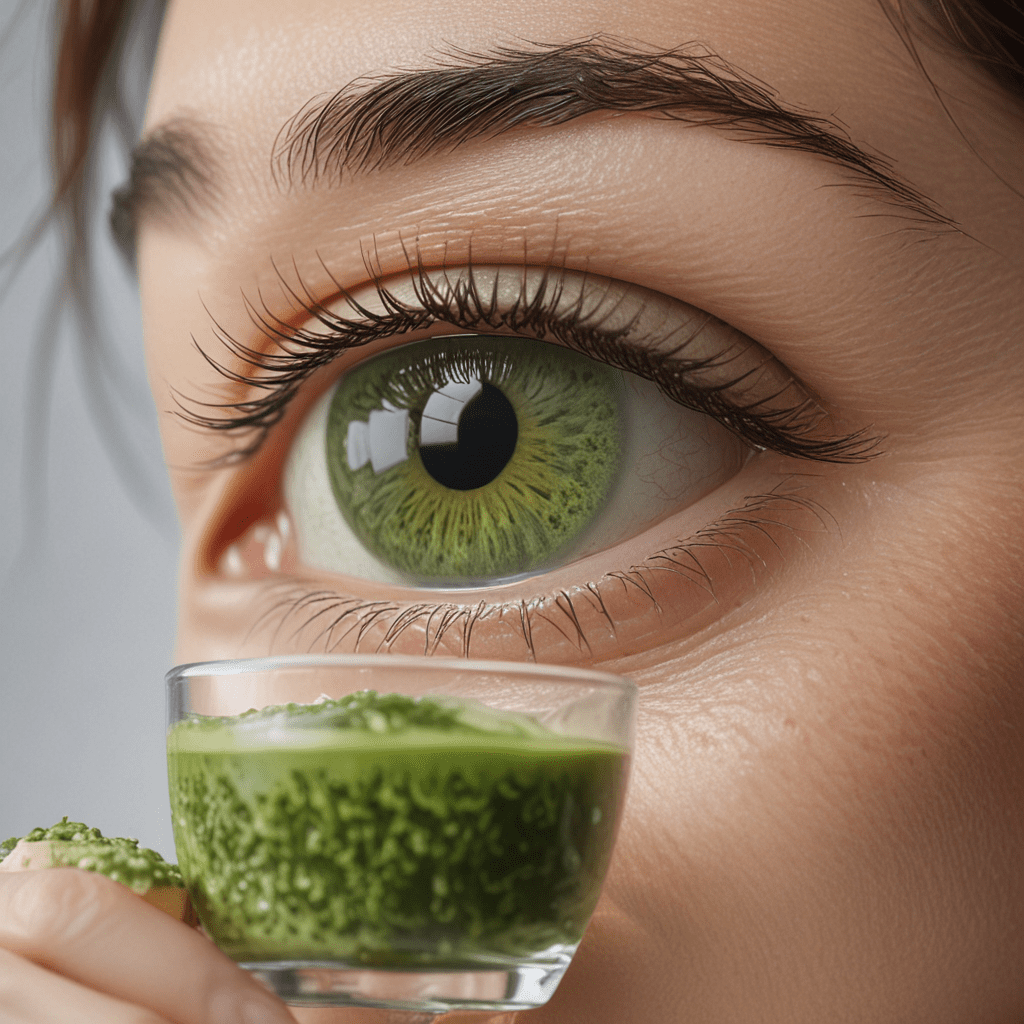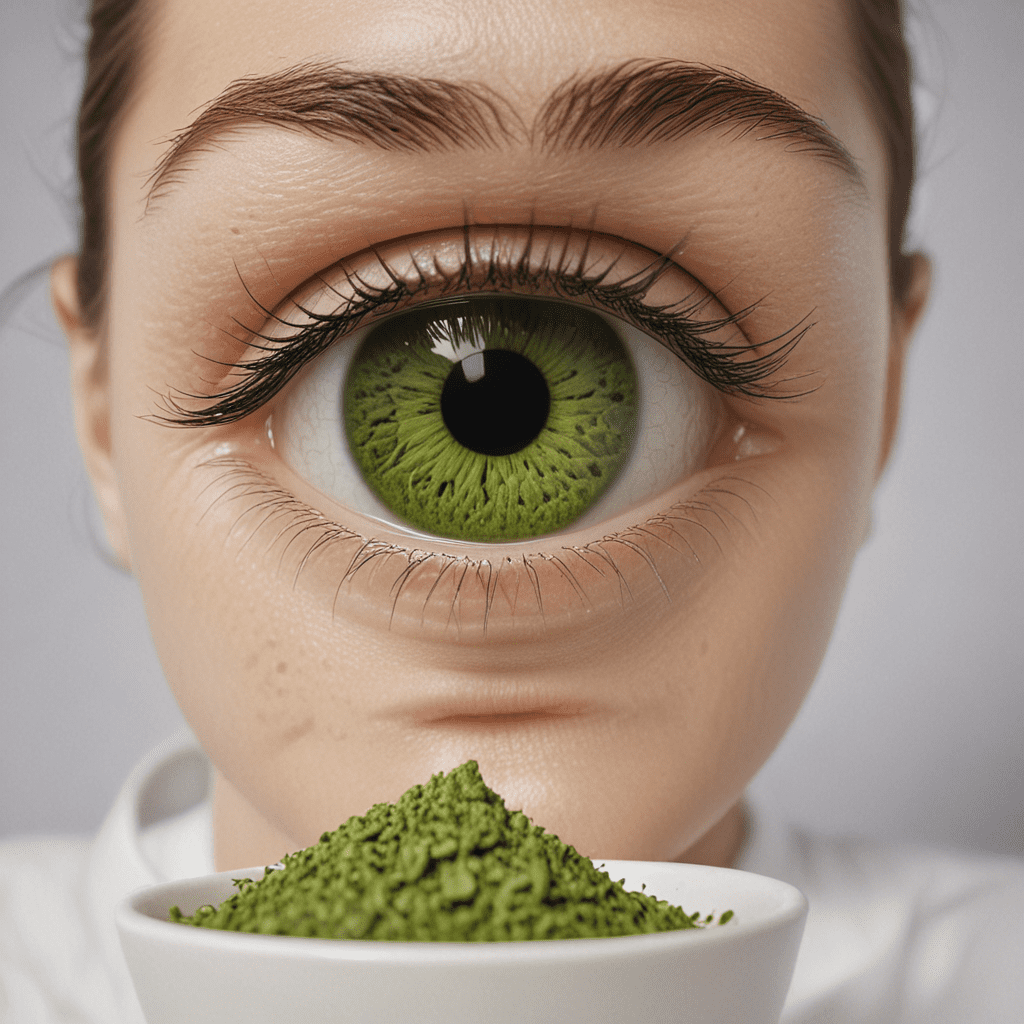
Matcha Tea: A Source of Health-Promoting Compounds
Matcha, a vibrant green tea powder, has gained widespread recognition for its exceptional health benefits. Derived from finely ground green tea leaves, matcha contains a plethora of bioactive compounds that contribute to its medicinal properties. Among these compounds are powerful antioxidants, vitamins, and minerals that play a crucial role in maintaining overall well-being, including eye health.
Antioxidants in Matcha: Protection Against Free Radical Damage
Matcha is a rich source of antioxidants, particularly catechins, which are known for their protective effects against oxidative stress. Oxidative stress occurs when there is an imbalance between the production of free radicals and the body's ability to neutralize them. Free radicals are unstable molecules that can damage cells and contribute to the development of various chronic diseases, including eye disorders.
Lutein and Zeaxanthin: Essential Nutrients for Eye Health
Two essential carotenoids found in matcha are lutein and zeaxanthin. These nutrients are concentrated in the macula, a small area of the retina responsible for central vision. Lutein and zeaxanthin act as antioxidants, protecting the macula from damage caused by ultraviolet (UV) light and blue light exposure. By consuming matcha, individuals can increase their intake of these essential nutrients, promoting optimal eye health.
Matcha's Role in Preventing Age-Related Macular Degeneration (AMD)
Age-related macular degeneration (AMD) is a leading cause of vision loss in older adults. AMD occurs when the macula undergoes degeneration, leading to impaired central vision. Studies have shown that regular consumption of matcha may reduce the risk of developing AMD. This is attributed to the presence of antioxidants, such as lutein and zeaxanthin, which protect the macula from damage and deterioration.
Matcha and Cataract Prevention
Cataracts are a clouding of the lens, which results in blurred vision. Matcha has demonstrated potential in preventing cataracts due to its antioxidant properties. Antioxidants can combat oxidative damage to the lens, reducing the likelihood of cataract formation. By incorporating matcha into their diet, individuals may help maintain clear and healthy eyesight.
Matcha's Anti-Inflammatory Properties and Eye Health
Inflammation plays a significant role in various eye conditions, including uveitis, conjunctivitis, and dry eye syndrome. Matcha, with its anti-inflammatory properties, can help combat inflammation and alleviate symptoms associated with these conditions. The polyphenols present in matcha have been found to inhibit the production of pro-inflammatory cytokines, reducing inflammation and promoting eye health.
Matcha as a Potential Treatment for Dry Eye Syndrome
Dry eye syndrome is a common eye condition characterized by dryness, irritation, and discomfort. This condition can be caused by a deficiency in tear production or an imbalance in tear composition. Studies have suggested that matcha consumption may provide relief from dry eye symptoms. The antioxidants and anti-inflammatory compounds in matcha help protect the tear film and improve tear quality, alleviating dryness and irritation.
Dosage and Consumption Recommendations
The optimal dosage of matcha for eye health varies depending on individual needs and preferences. Generally, consuming 1-2 cups of matcha tea daily is considered beneficial for maintaining healthy vision. Matcha powder can be easily incorporated into various beverages, such as smoothies, lattes, and baked goods. It is important to note that matcha contains caffeine, so individuals should adjust their intake accordingly to avoid excessive caffeine consumption.
Matcha: A Natural Supplement for Maintaining Healthy Eyesight
Matcha, with its rich array of health-promoting compounds, stands out as a natural supplement for supporting healthy eyesight. By regularly consuming matcha, individuals can benefit from its antioxidant, anti-inflammatory, and nutrient-rich properties that protect and nourish the eyes. Incorporating matcha into a balanced diet can contribute to maintaining clear and healthy vision throughout life.
Future Research Directions: Exploring Matcha's Potential in Eye Care
The potential of matcha in eye care is an exciting area of ongoing research. Future studies will delve deeper into the mechanisms of action by which matcha components protect and enhance eye health. Exploring the effects of matcha on specific eye conditions, such as glaucoma and diabetic retinopathy, can provide valuable insights into its therapeutic applications. Additionally, research on matcha's interactions with other nutrients and dietary supplements can optimize its use for improving overall eye well-being.
FAQs:
Can matcha improve eyesight?
Yes, matcha contains antioxidants and nutrients that have been shown to protect and enhance eye health, including lutein and zeaxanthin, which are essential for macular health.
How much matcha should I consume for eye health?
The optimal dosage of matcha for eye health can vary. Generally, consuming 1-2 cups of matcha tea daily is considered beneficial.
Is matcha safe for everyone?
Matcha is safe for most people in moderate amounts. However, individuals with caffeine sensitivity or certain health conditions should consult with a healthcare professional before consuming matcha.
Can matcha prevent eye diseases?
Matcha contains antioxidants and nutrients that may help reduce the risk of developing certain eye diseases, such as age-related macular degeneration and cataracts. However, more research is needed to determine the specific protective effects of matcha on these conditions.
